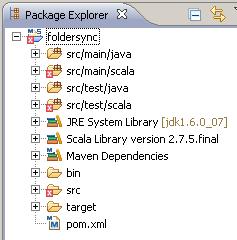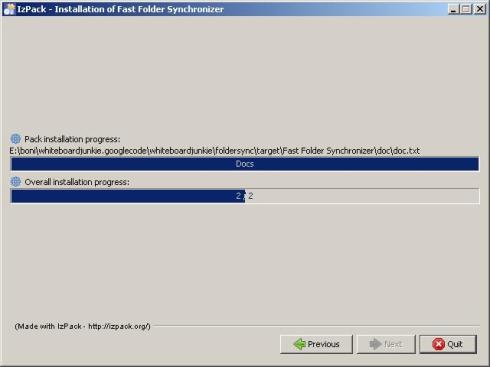Some lessons are learnt the hard way. A datamanagement library (abstracting Jackrabbit-JCR) I designed a few months back showed tremendous weakness while handling large concurrency. My first instinct was to run for cover and make all access methods synchronized. Since the framework was a spring managed setup (some keys beans were singleton), the synchronization short cut only made things worse, performance dropped like a stone. Luckily, more for me and some for a handful of modules dependent on the reliability and accuracy of this datamanagement library, the solution was simple to implement.
The root cause of the problem was many re-entrant threads sharing the same session accessing data modification methods concurrently. Session sharing across threads is lamented as an absolute no-no in the JCR world. For some reason that I still have not debugged into, Jackrabbit has left the session management for the developers to perfect. To solve the problem I wrote a class that will manage sessions per thread using the Unique Thread ID. To avoid languishing sessions the sessions are managed through a LRU Map (A map of fixed size with an eviction policy based on Least Recently Used Session makes space for a new Session request).
RepositoryUtil.java
package org.boni.jrtutorial.util;
import java.util.Collections;
import java.util.HashMap;
import java.util.Map;
import java.util.UUID;
import javax.jcr.Repository;
import javax.jcr.Session;
import javax.jcr.Workspace;
import org.apache.commons.collections.map.LRUMap;
import org.apache.commons.logging.Log;
import org.apache.commons.logging.LogFactory;
public class RepositoryUtil {
private static Map<Integer, Session> sessionMap;
private static Log logger = LogFactory.getLog(RepositoryUtil.class);
protected int size(){
return ((sessionMap == null)?0:sessionMap.size());
}
public RepositoryUtil(int maxConcurrentSessions){
reinitializeSessionMapResources(maxConcurrentSessions);
logger.debug("Adding a shutdown hook for JCR session cleanup");
Runtime.getRuntime().addShutdownHook(new Thread(){
@Override
public void run() {
logger.debug("Starting the shutdown hook");
cleanJcrSessions();
logger.debug("Shutdown hook finished running");
}
});
logger.debug("shutdown hook added for JCR session cleanup");
}
private void cleanJcrSessions(){
logger.debug("Starting the JCR session cleanup through shutdown hook invokation");
synchronized (sessionMap) {
for (Integer aKey : sessionMap.keySet()) {
try {
sessionMap.get(aKey).logout();
logger.debug("Released a session...");
} catch (Exception e) {
logger.error(e, e);
}
}
}
}
@SuppressWarnings("unchecked")
private void reinitializeSessionMapResources(int size){
logger.debug("Initializing Session Map");
sessionMap = (Map<Integer,Session>)(Collections.synchronizedMap(new LRUMap(size)));
logger.debug("Succesfully initialized Session Map");
}
public Session getSession( Repository repository,
String workspace,
javax.jcr.Credentials credentials
) {
long threadId = Thread.currentThread().getId();
int sessionKeyId = new SessionKey(workspace,threadId).hashCode();
logger.debug("Session map is managing " + ((sessionMap == null)?0:sessionMap.size()) + " sessions");
synchronized (sessionMap) {
if (sessionMap.containsKey(sessionKeyId)) {
Session session = sessionMap.get(threadId);
if (session.isLive()) {
String[] locks = session.getLockTokens();
for (String aLock : locks){
session.removeLockToken(aLock);
}
return session;
}
}
try {
Session session = repository
.login(credentials, workspace);
sessionMap.put(sessionKeyId, session);
return session;
} catch (Exception e) {
logger.debug(e.getMessage());
throw new RuntimeException(e);
}
}
}
class SessionKey{
int hashCode = -1;
SessionKey(String workspace, Long thread){
workspace = (workspace == null)? "default" : workspace;
thread = (thread == null)? UUID.randomUUID().clockSequence() : thread;
hashCode =
17 * workspace.hashCode() +
19 * thread.hashCode();
}
@Override
public int hashCode() {
return hashCode;
}
}
}
RepositoryUtilTest.java
package org.boni.jrtutorial.util;
import static org.junit.Assert.assertNotNull;
import static org.junit.Assert.assertTrue;
import static org.junit.Assert.fail;
import java.util.UUID;
import java.util.concurrent.ExecutorService;
import java.util.concurrent.Executors;
import javax.jcr.Node;
import javax.jcr.Repository;
import javax.jcr.Session;
import javax.jcr.SimpleCredentials;
import org.apache.commons.logging.Log;
import org.apache.commons.logging.LogFactory;
import org.apache.jackrabbit.core.TransientRepository;
import org.junit.BeforeClass;
import org.junit.Test;
public class RepositoryUtilTest {
private static Log logger = LogFactory.getLog(RepositoryUtilTest.class);
static RepositoryUtil ru = null;
static Repository repository = null;
static int MAX_SESSIONS=10;
@BeforeClass
public static void beforeClass() throws Exception{
ru = new RepositoryUtil(MAX_SESSIONS);
repository = new TransientRepository(
"classpath:repository.xml",
"target/repository");
}
@Test
public void testSingleLogin(){
Session aSession = ru.getSession(repository, "default",new SimpleCredentials("username","password".toCharArray()));
assertNotNull(aSession);
assertTrue(ru.size() > 0 && ru.size() <= MAX_SESSIONS);
}
@Test
public void testTrannsactionWith1000Threads(){
ExecutorService ex = Executors.newFixedThreadPool(1000);
for (int i = 0 ; i < 1000 ; i++){
ex.execute(new Thread(){
@Override
public void run() {
testSingleLogin();
}
});
}
ex.shutdown();
}
private Node testNode = null;
@Test
public void testUpdateOnSameNodeWith1000Threads() throws Exception{
this.testNode = createTestNode();
ExecutorService ex = Executors.newFixedThreadPool(1000);
for (int i = 0 ; i < 1000 ; i++){
ex.execute(new Thread(){
@Override
public void run() {
Session aSession = ru.getSession(repository, "default",new SimpleCredentials("username","password".toCharArray()));
addNode(aSession, testNode, UUID.randomUUID().toString());
}
});
}
ex.shutdown();
}
private void addNode(Session s, Node aNode, String newNode){
try {
long before = aNode.getNodes().getSize();
aNode.addNode(newNode);
s.save();
assertTrue(before + 1 <= aNode.getNodes().getSize());
} catch (Exception e) {
logger.error(e, e);
fail();
}
}
private Node createTestNode() throws Exception {
Session aSession = ru.getSession(repository, "default",new SimpleCredentials("username","password".toCharArray()));
Node testNode = aSession.getRootNode().addNode("testNode");
return testNode;
}
}
[/sourcecode]
<code>pom.xml [only the relevant dependencies]</code>
<dependency>
<groupId>javax.jcr</groupId>
<artifactId>jcr</artifactId>
<version>1.0.1</version>
</dependency>
<dependency>
<groupId>commons-collections</groupId>
<artifactId>commons-collections</artifactId>
<version>3.2.1</version>
</dependency>

